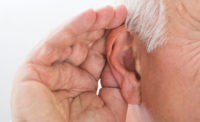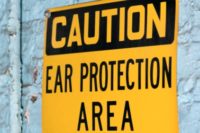About 20 percent of Americans, 48 million, report some degree of hearing loss. It’s a major public health issue that is the third most common physical condition after arthritis and heart disease. Gradual hearing loss can affect people of all ages, from mild to profound, but at age 65, one out of three people has a hearing loss, according to www.hearingloss.org.
About 60 percent of the people with hearing loss are either in the workforce or in educational settings. From 2000 to 2015, the number of Americans with hearing loss has doubled.
If you have a hearing loss, sounds may seem loud enough, but not clear. People may seem to be mumbling or talking too quickly. Quiet sounds, such as a clock ticking, birds, singing or voices from another room just cannot be heard as well as before. You may have difficulty locating the source or direction of sounds. Loud sounds may seem more sharp and annoying than before. You may hear ringing or buzzing in your ears.
What can cause hearing loss?
The simplest cause of hearing loss is a buildup of wax in the ear canal. If this wax, called cerumen, completely blocks the ear canal, you might experience a very noticeable loss of hearing. In most cases the wax is easily removed by a physician.
Exposure to loud noise, even for a short period, can cause you to feel that your hearing ability is lessened, and you may also experience some tinnitus (ringing in the ears). This problem usually goes away after a period of time once you are out of the noisy environment. Too much exposure to loud noise can lead in time to a permanent hearing loss.
Can noise damage hearing?
Excessive noise can cause hearing loss. Some people who have worked in noisy factories
or served in the armed forces have experienced a change in hearing ability. If there are areas that have been measured to be loud enough to cause damage to your hearing, wear ear protection. It is also necessary to consider the amount of time spent in the noisy environment. The louder the noise, the shorter the time you should be exposed to it.
Unfortunately, some people are more susceptible than others to this type of hearing loss, and there is no way to predict their susceptibility until it is too late. If you are at risk, it is a good idea to be tested regularly to monitor and prevent any problems.
Many sounds can damage hearing. Ear protection should be worn in any situation where noise levels exceed 85 dB. Noise-induced hearing loss may happen slowly over time or suddenly. Being exposed to everyday noises, such as listening to very loud music, being in a noisy work environment or using a lawn mower, can lead to hearing loss over many years.
Warning signs
- You have ringing or buzzing in your ears after exposure to noise.
- You have pain in your ears after exposure to noise.
- You notice that sounds seem muffled.
- You have difficulty hearing quiet sounds after a period of exposure to loud sounds.
- You feel a fullness in your ears.



